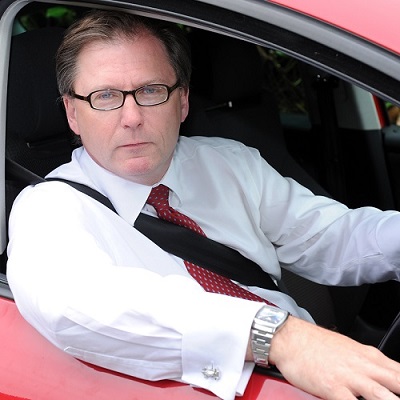What do we all know about new technology? It was a question I found myself musing on whilst at the recent Transport Technology Forum gathering in sunny Newcastle-upon-Tyne.
On the upside new technology can be clever stuff. It can make new things possible – like writing this column on a wirelessly connected tablet whilst sipping coffee in the magnificently restored portico of Newcastle railway station. Sometimes it can make other things easier and cheaper too.
But on the dark side, which, to be honest, is where I tend to dwell, it can be expensive and temperamental – risky even. There are many attractions to buying a tried and tested product because, by-and-large, you can be confident of what you are getting.
So it is with transport technology.
And therefore full marks to those in our national transport departments who find the money to support the pilot and pathfinder schemes that would otherwise be far too hard for cash-strapped local highway authorities to trial. Better still if at a national level the learning from those pilots and pathfinders can be properly and thoroughly aggregated, analysed and disseminated to make us all better informed of the real art-of-the-possible which modern technology can support.
That really is the backdrop to the Transport Technology Forum, which was born of a collective frustration that something wasn't working in the conversation between the transport tech supply chain and its potential highway authority clients.
In part that reflects a challenge in articulating what exactly we want from our transport technology. Yes, I know that the headline from our elected masters is that they want their towns, cities and strategic links to be 'smart' and 'connected'. But that's easier said than done when the task is to turn their ambition into the language and contractual obligations of public procurement.
Some years ago a major piece of market research established that, when asked, most adult Americans would say that they wanted coffee that was a full, strong, rich roast, which was interesting because what most of them actually chose to drink was mild and milky. Are you a 'mild and milky' person? I thought not.
Even when we know what we want it can sometimes be quite hard to say it.
Let's turn to the supply chain, bubbling with bright ideas but perhaps not well-enough able to match them to the specific traffic challenges highway authorities face. It's true that from time-to-time the commercial world throws up a genius like Steve Jobs, who famously trusted his own judgement of what people would want better than any amount of customer research. A genius might be able to discern what you want before you even know it yourself. But genius is not commonplace, more's the pity.
So the three key questions I'd invite suppliers to consider about their new tech products are "what's it for?", "does it work?" and "who do you think is in a position to buy it?".
That last question is a particularly important one for the transport tech conversation, because there are things about the public purse that are not widely understood.
First, the public sector is not a business. Anyone who saves money from one heading of their budget expecting to have more to spend elsewhere is likely to find that what they've achieved is an 'efficiency saving', which will be swiftly banked by their finance department and docked from next year's numbers.
Second, capital and current (so called "resource") expenditure are the chalk and cheese of public sector accounting. In short, there is, sometimes, enough money to be had to buy something – a bridge, a tunnel, an advanced traffic signalling system – because that means you're acquiring a capital asset. This is called "investment" and is considered to be good. But in the world of highway management the provision for running costs is small and shrinking. Because "running costs" are a drain on the budget, and are considered to be bad.
So if your asset needs routine maintenance or, heaven forbid, day-to-day operation by people, then it might rapidly lose its attraction. Ergo if your product is going to add to, rather than reduce, the resource budget you are going to be on a very hard sell indeed.
Which is why I am very supportive of the concept of the Transport Technology Forum, and of the recent Tech Fest hosted by Highways England to showcase the work that's going into their A2/M2 connected corridor project. Because there are clever, relatively inexpensive ideas out there which could fundamentally change the art of the possible, and with the scale of the transport challenges we are facing we can ill afford to let them slip through our fingers.

Steve Gooding is Director of RAC Foundation


